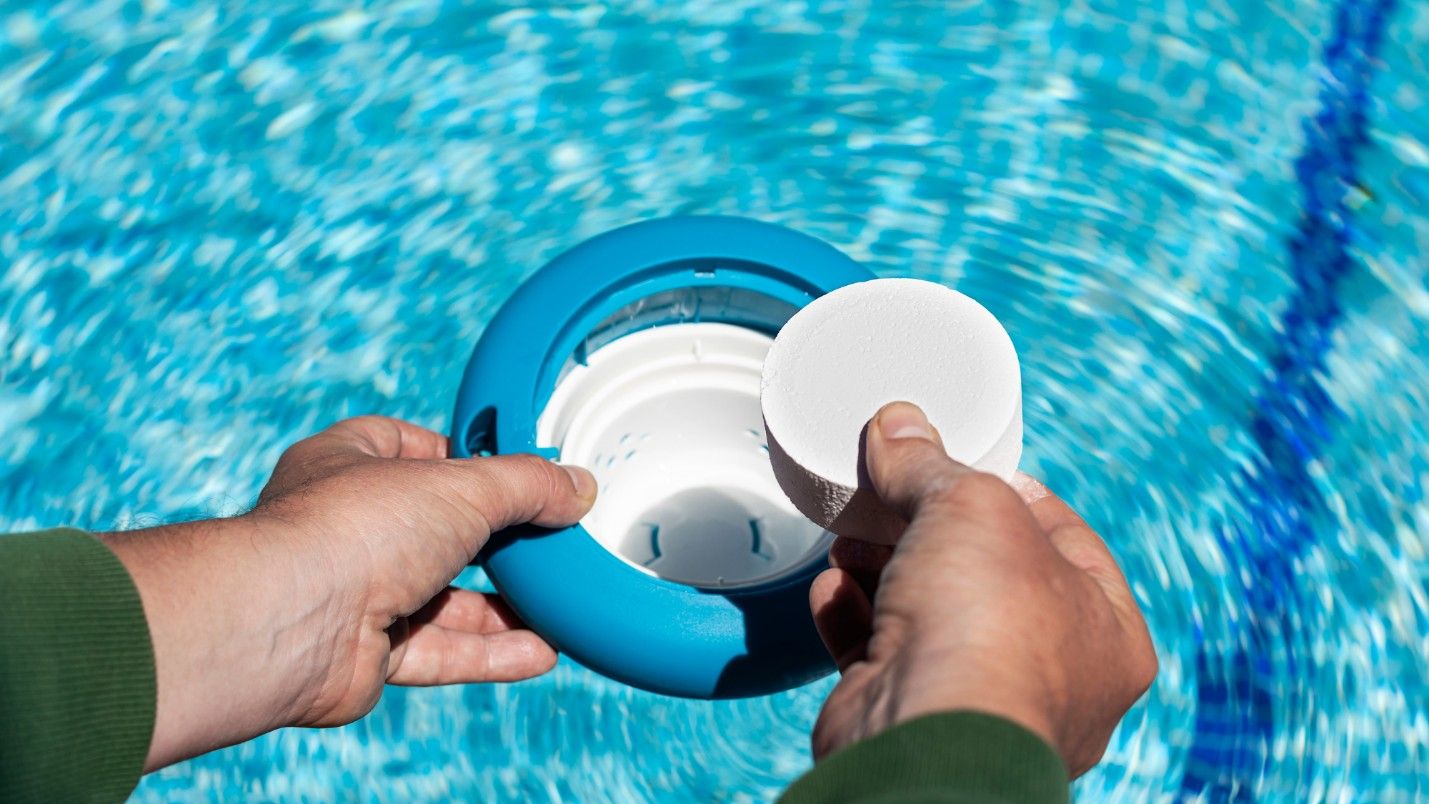Chlorine acts as a disinfectant, killing bacteria, algae, and other harmful microorganisms in your pool. However, using it correctly requires careful balance. Too little chlorine can lead to murky, bacteria-filled water, while too much can cause irritation to your skin and eyes. In this guide, we’ll break down everything you need to know about pool chlorine from professional pool builders in Napa County to help you keep your pool in perfect condition year-round.
Keep in mind that any suggestions here are only supplementary to the professional recommendations of your pool builder. If you are unsure about utilizing chlorine in your pool, it is ALWAYS best to contact your pool company directly for specific information.
Understanding Proper Pool Chlorine Levels
The right chlorine level ensures your pool stays sanitary and your home spa continues to enhance your life without causing irritation. The ideal chlorine concentration varies slightly depending on pool use, temperature, and environmental factors, but the general recommendations are:
- Free Chlorine: 1.0 – 3.0 ppm (parts per million)
- Combined Chlorine: Less than 0.5 ppm
- Total Chlorine: Should be close to your free chlorine level
Free Chlorine vs. Combined Chlorine
- Free Chlorine is the active sanitizer in your pool that kills bacteria and contaminants.
- Combined Chlorine is the byproduct of chlorine binding with contaminants, making it less effective.
- Total Chlorine is the sum of free and combined chlorine levels.
Types of Pool Chlorine
Chlorine comes in various forms, each with its own benefits and best-use scenarios. Speak with your licensed pool contractor about which type is best for your pool environment.
Liquid Chlorine
- Pros: Fast-acting, cost-effective for large pools
- Cons: Unstable, short shelf-life, adds extra pH to the water
Chlorine Tablets (Trichlor)
- Pros: Slow-dissolving, easy to use, stabilized to prevent sunlight degradation
- Cons: Can lower pH levels, may cause over-stabilization if used excessively
Granular Chlorine (Cal Hypo or Dichlor)
- Pros: Quick-dissolving, can be used for shocking or daily sanitation
- Cons: Some types are unstabilized, requiring additional stabilizer
Pool Shock (Superchlorination)
- Pros: Quickly removes contaminants, eliminates chloramines, restores water clarity
- Cons: Can require pool closure for several hours, may cause irritation if misused
How to Safely Handle Pool Chlorine
To get the surprising health benefits of home spas, your pool and spa must be kept chemically safe. Follow these chlorine safety tips to protect yourself and your family:
Store Chlorine Properly
Keep it in a cool, dry, well-ventilated area away from direct sunlight and moisture.
Wear Protective Gear
Use gloves and safety goggles when handling chlorine to prevent skin and eye irritation.
Never Mix Chemicals
Chlorine should never be mixed with other pool chemicals, especially acids or ammonia, as it can create dangerous gases.
Measure Carefully
Always follow manufacturer instructions and measure chlorine accurately to prevent overuse.
Keep Your Pool Safe and Clean with Sonoma Pool and Spa
At Sonoma Pool and Spa, we provide essential safety and cleaning information with every pool we install. Whether you’re looking to install a new pool or need trustworthy maintenance, our pool builders have the experience to make it happen! Contact Sonoma Pool and Spa today or give us a call at 707-396-7526 for a consultation!

